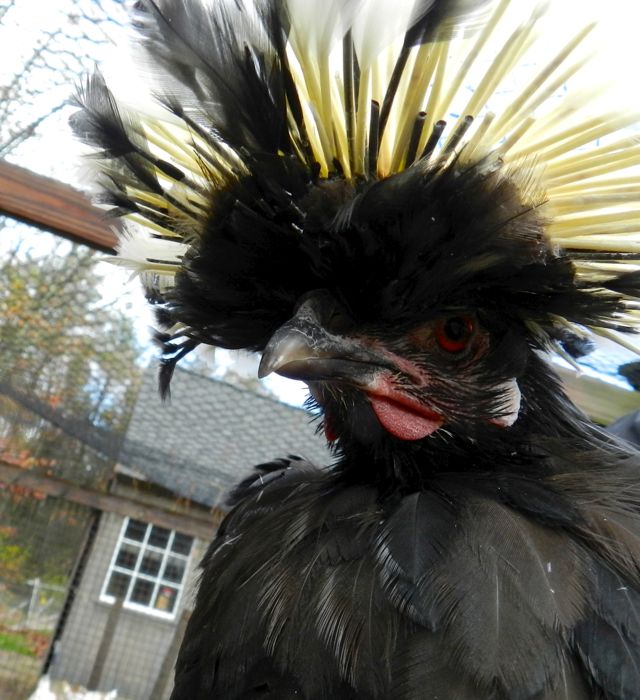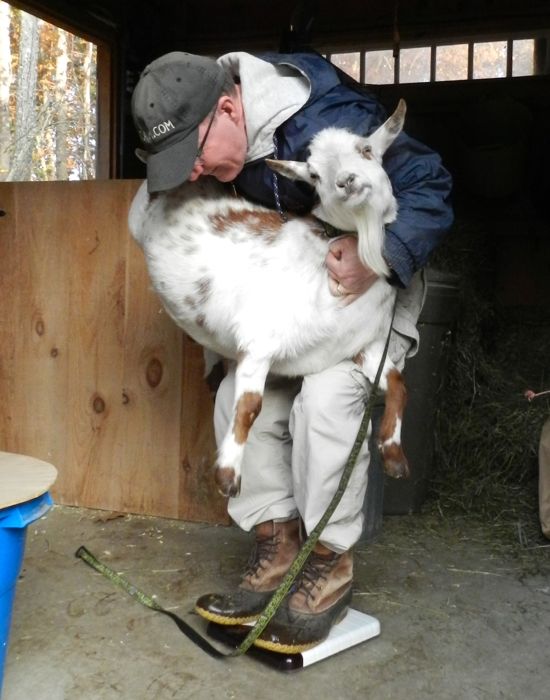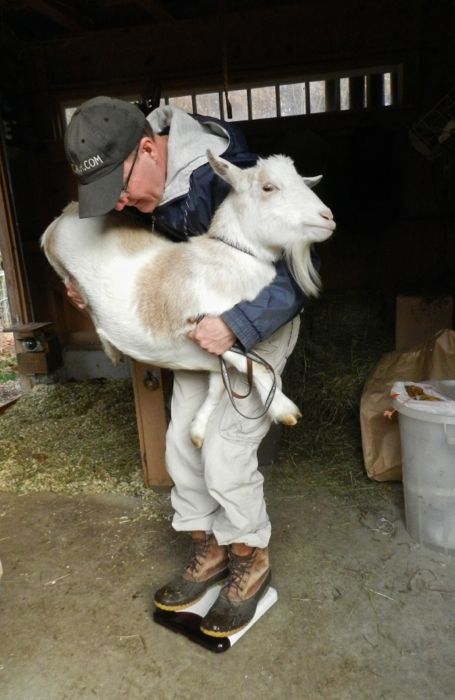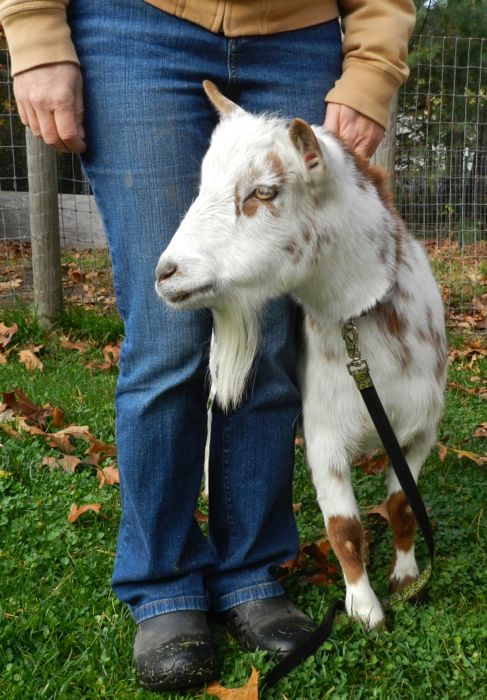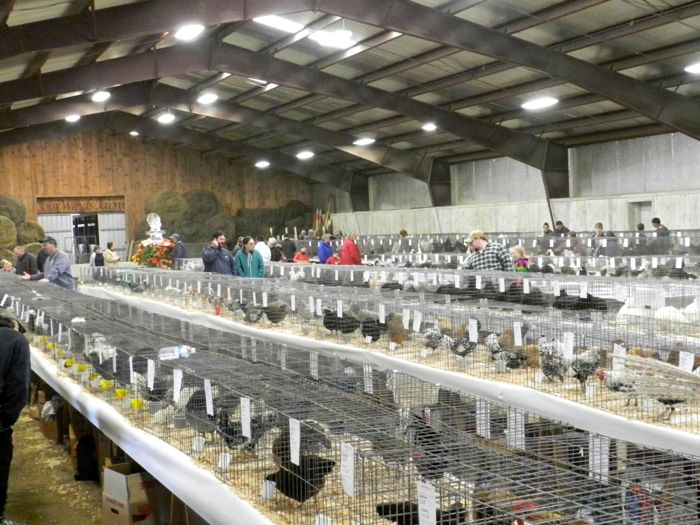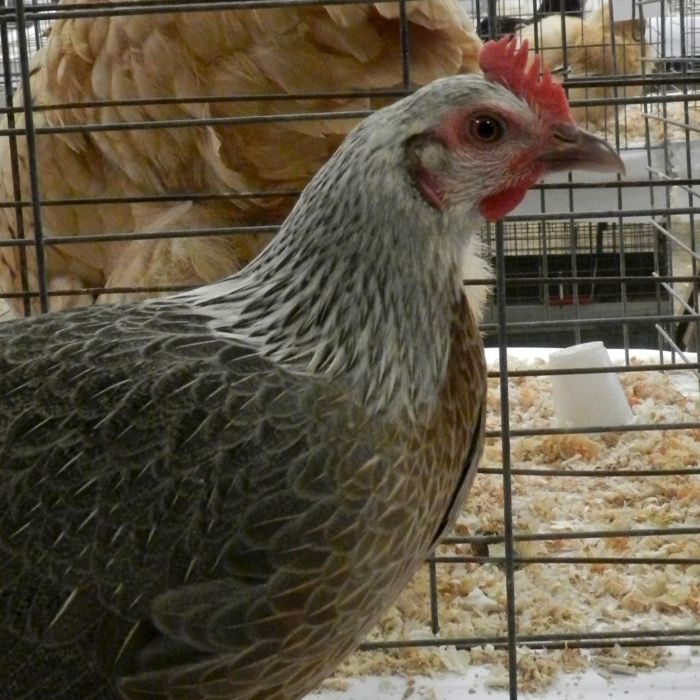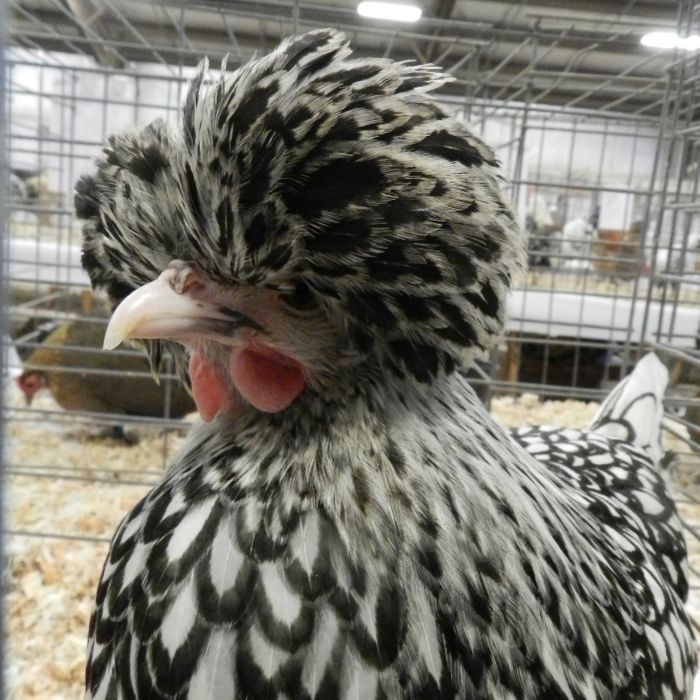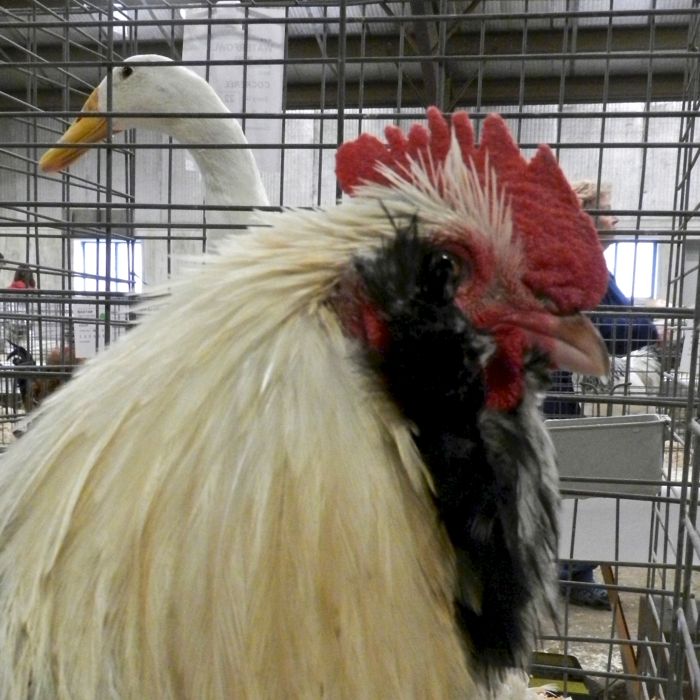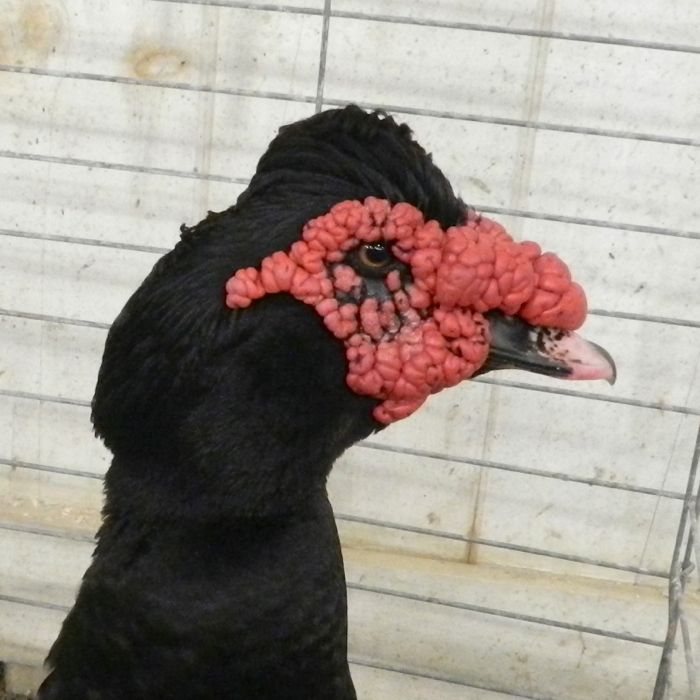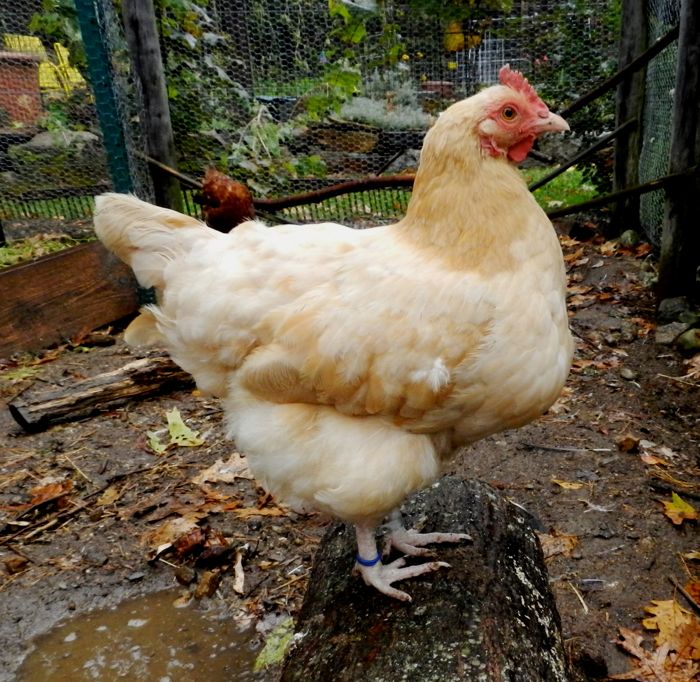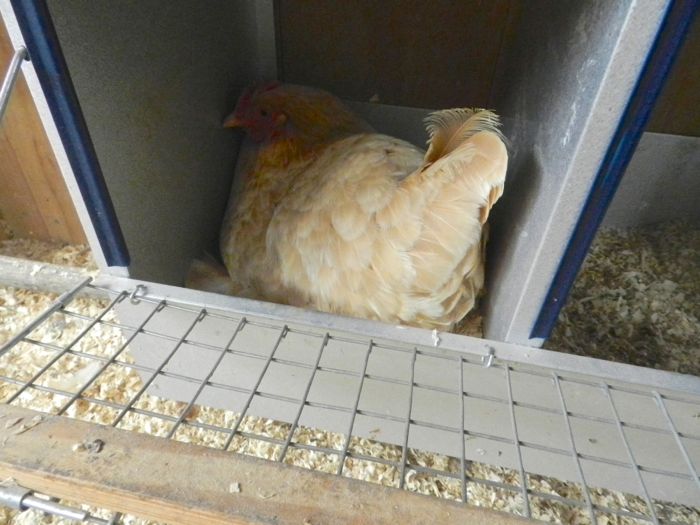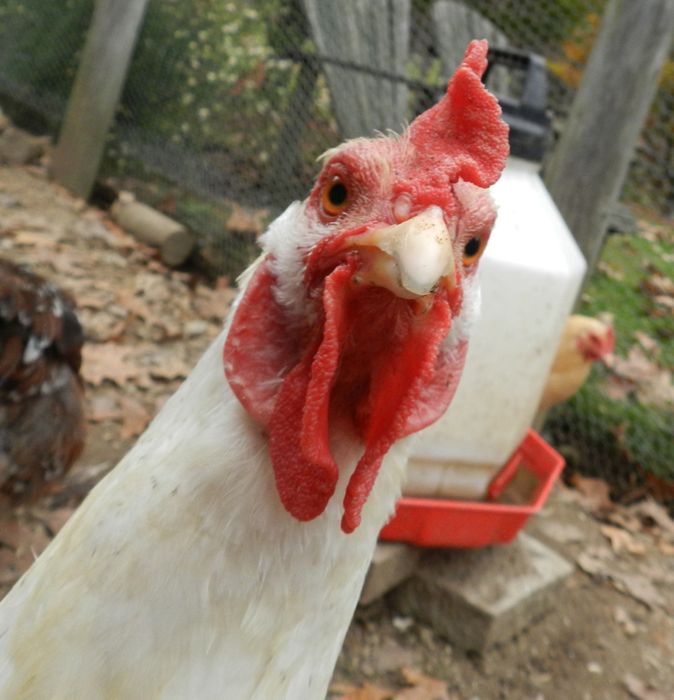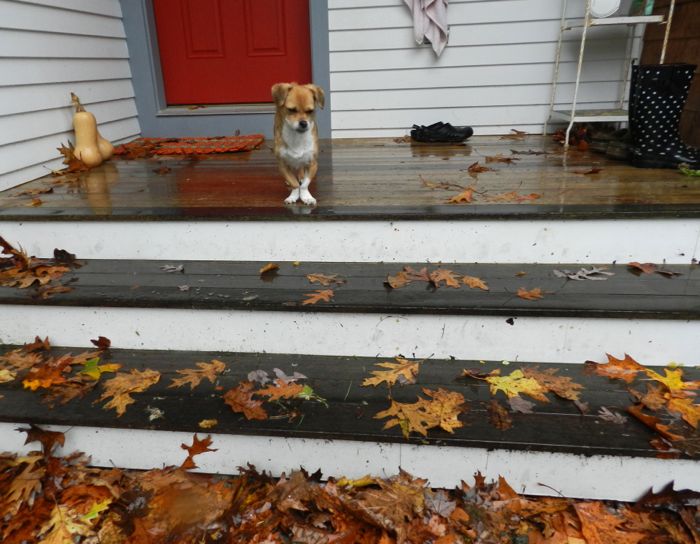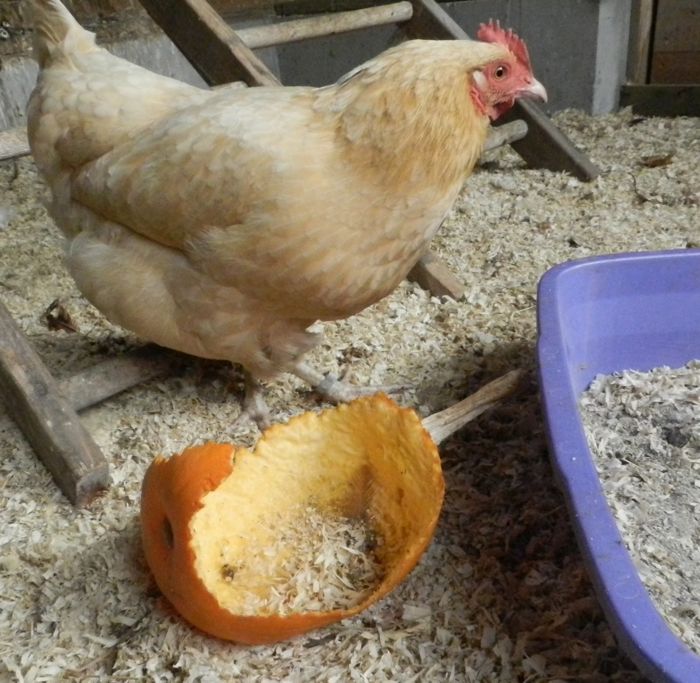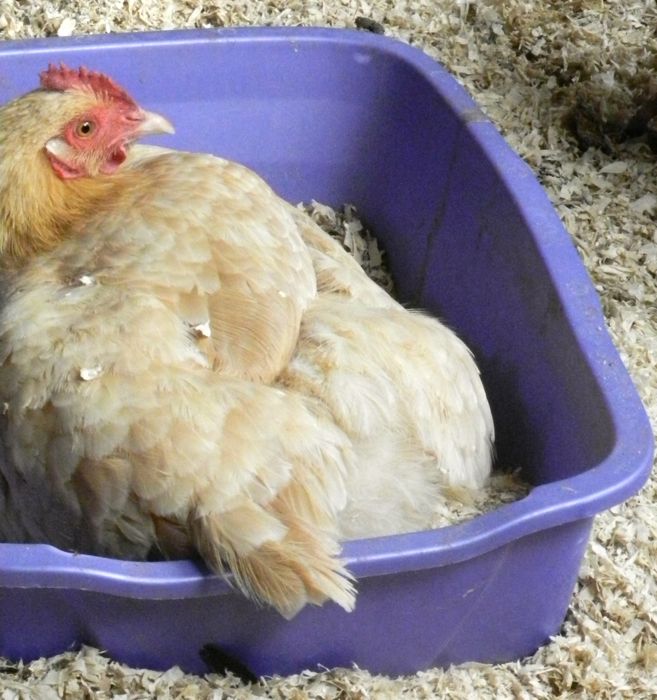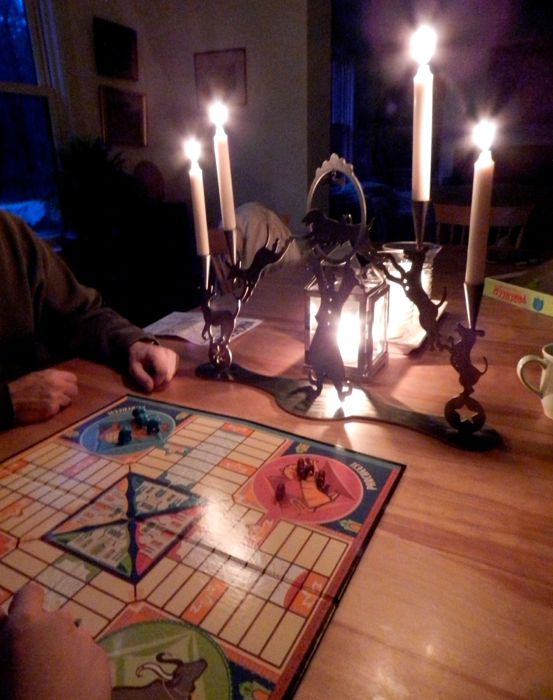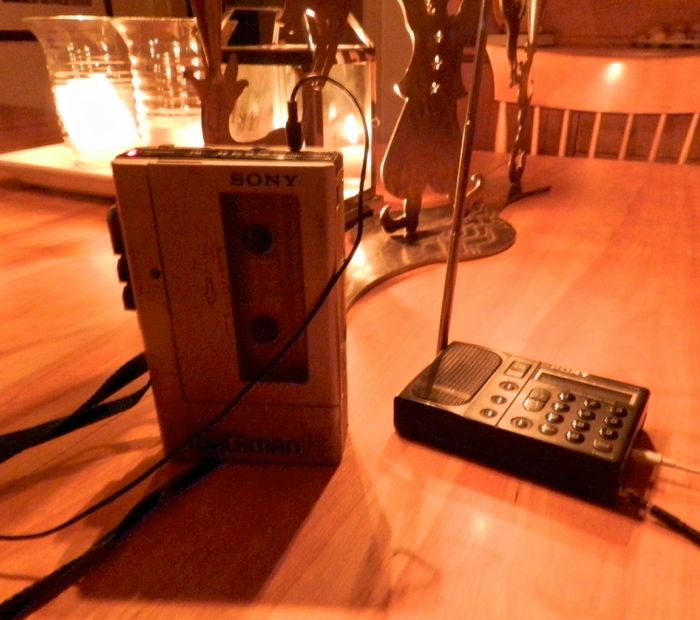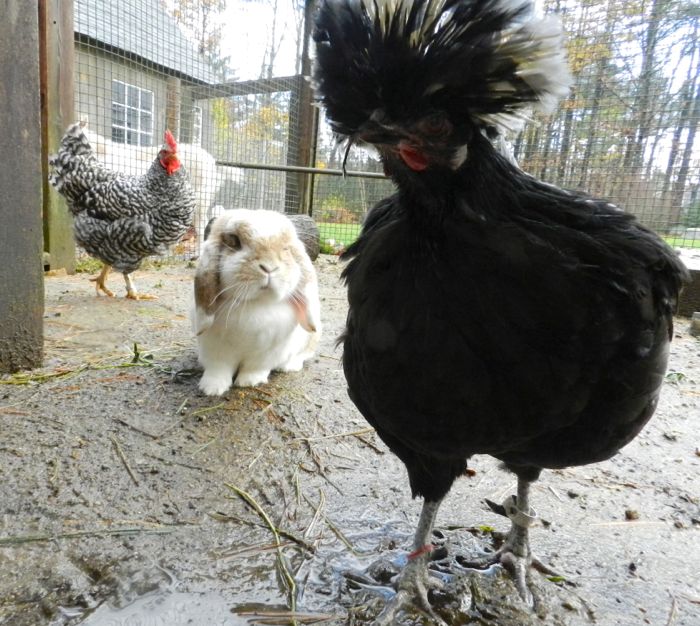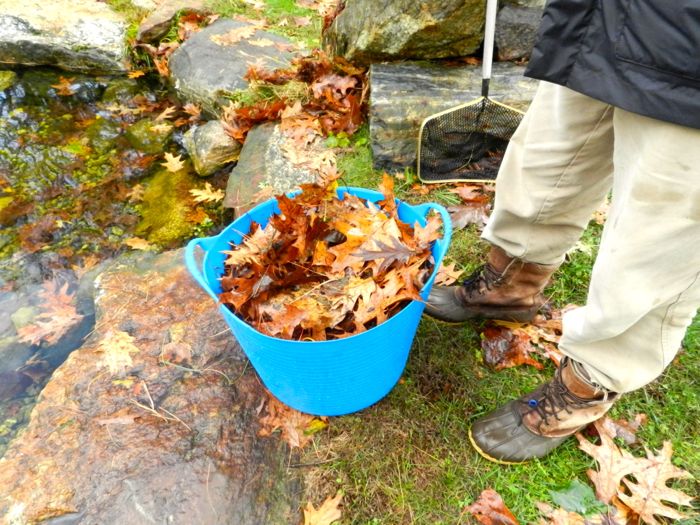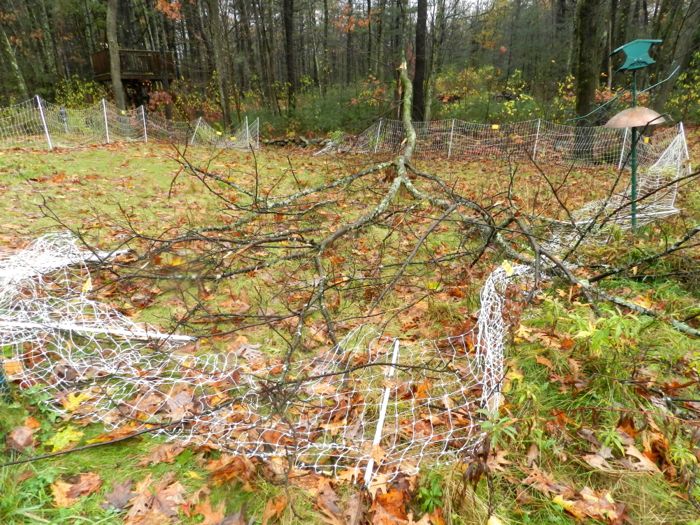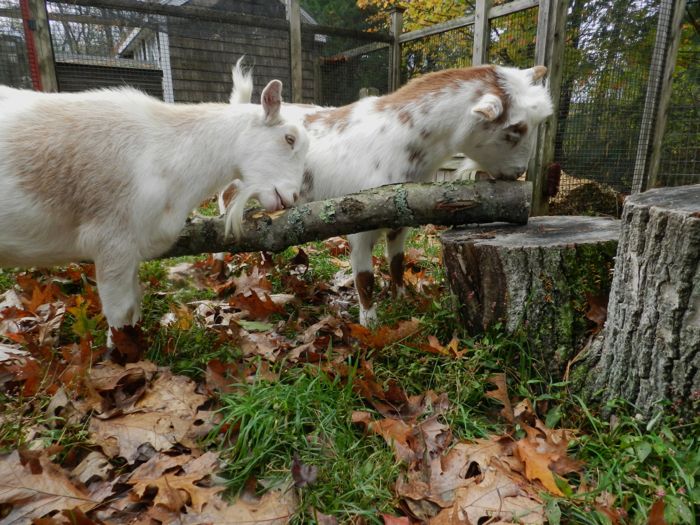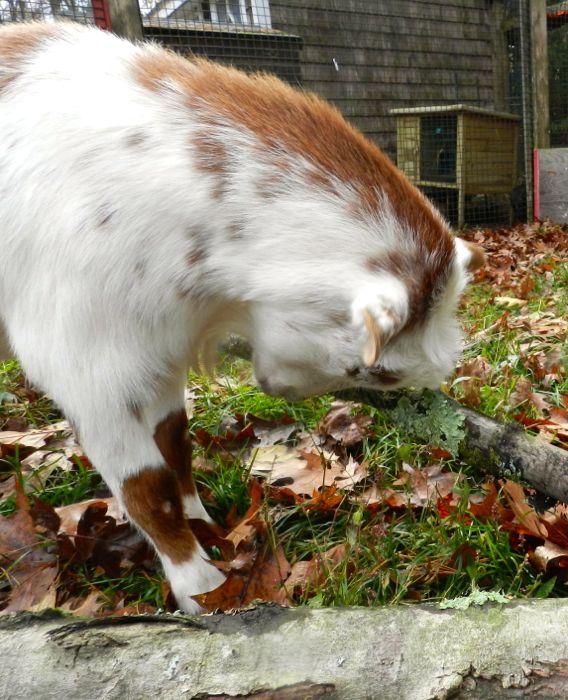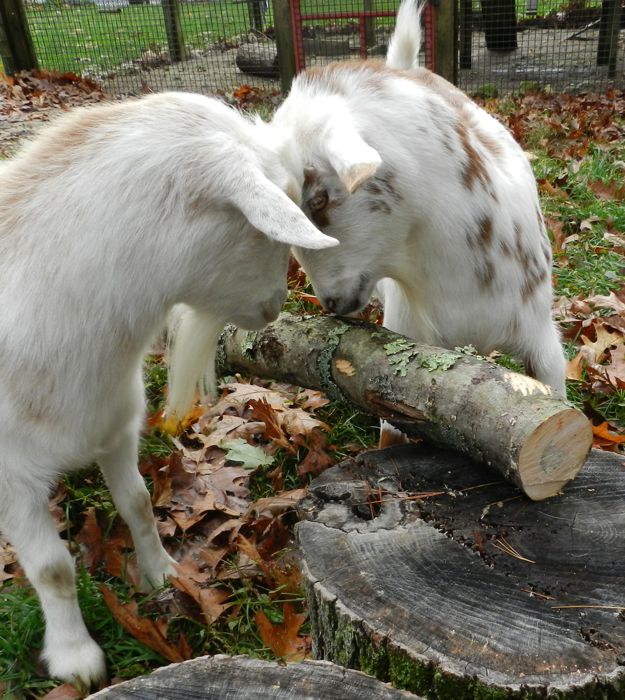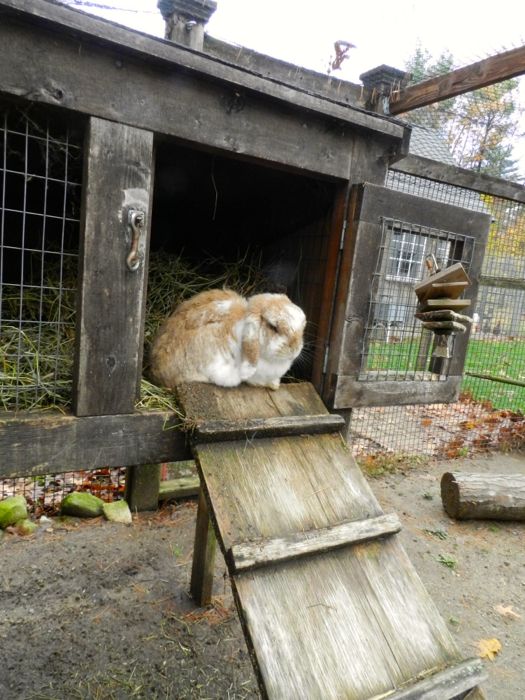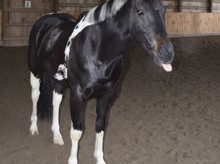Most chickens, whether they’re fluffy-bottomed Orpingtons or sleek Welsummers, are winter hardy. As long as you give them shelter out of the wind, a draft-free coop at night, and a constant supply of fresh water, they can ride out snowstorms, deep-freezes and whatever else winter throws their way.
Although you might think that you’re being kind and indulgent by hanging a heat lamp, you’re actually doing your hens a disservice. Chickens stay warm by fluffing up and trapping air between their feathers. They’re essentially wearing insulated down coats. When they stand under a heat lamp they stop fluffing. Do you know how nice it is on a cold winter day to warm up by a fire? Now think about how hard it is to move away from the hearth and how chilled you feel when you do. A chicken goes through exactly the same thing when stepping away from a heat lamp. She won’t want to. So she’ll stay still and won’t eat or drink or get the exercise that she needs. When she does move out from under the lamp, she won’t be fluffed up and so she won’t be warm. It’s better for a hen to keep herself cozy in her coat than to go from under a lamp to the cold outside of it’s warm glow.
However, a few types of chickens have unusual feathers and so do require extra winter care. Years ago I had a sweet little Silkie hen. She died one winter and I’d always assumed it was because I didn’t provide her with heat. There were experienced breeders of Silkies at the poultry show this past weekend I made a point of talking to several. I found out that I was wrong about the heat, but not wrong that Silkies require special winter care.
Despite feathers that look like fur,
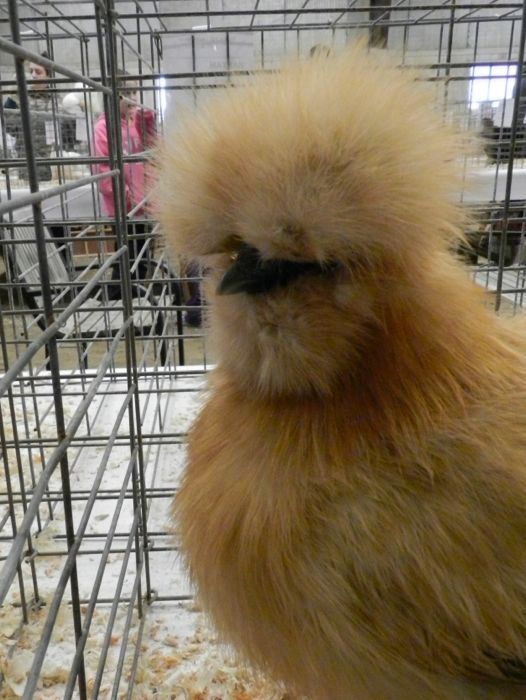
and twisted feathers like those on this Bantam Frizzle Polish,
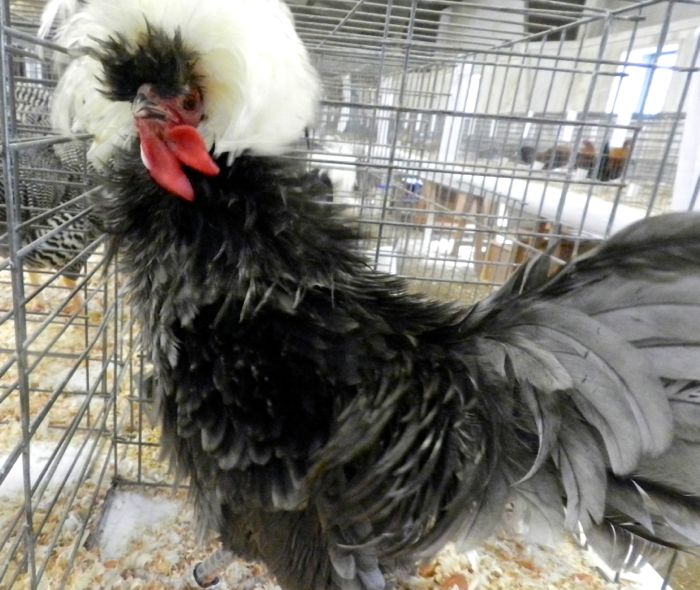
these birds don’t need heat. In fact, the breeders that I talked to had the same objections to heat lamps that I do. What these fancy chickens do need is to stay dry. Water rolls off of regular feathers. The outer “hard” feathers on most chickens repel water like a rain slicker. But Silkies have no protection against the damp. In the rain they become soggy sponges. Just standing in mud can kill them. Frizzles, too, can’t handle rain, as it drips between their feathers and soaks their skin. Polish, with their huge top-knots end up with sodden heads. Combine wet hens with cold temperatures, and you end up with sick chickens and death. The breeders of the fancy birds that I talked with said that they keep their stock indoors during the winter. They only allow them outside when the ground is dry and the sky is clear. Wind is also a concern. Without sturdy outer feathers to block cold gusts, these fancy chickens get chilled to the bone. Outside areas require wind breaks (a wall of straw bales works fine.)
All of these very experienced chicken keepers talked about how important clean, dry and well-ventilated coops are. Damp air must have a way up and out. Novices make the mistake of battening down their coops so tightly that there is no air flow. Manure is 75% water, and without good ventilation that water, and the ammonia from the breakdown of nitrogen in the manure, will cause respiratory disease. This is why I keep the coop clean. It’s why I installed a cupola in the roof of the little barn a couple of years ago. What a difference that made! No longer do the insides of the windows ice up.
I don’t keep Silkies because I don’t have a separate area for housing them indoors during the winter. I do have Polish. They’re not show birds and so I give them a winter haircut. Tina and Siouxsie got theirs the other day. They’re still growing in new feathers, so they look rather silly. But their heads are dry and they can see where they’re going. We’re ready for winter. For more about winter care and feeding of chickens, read my FAQ.
